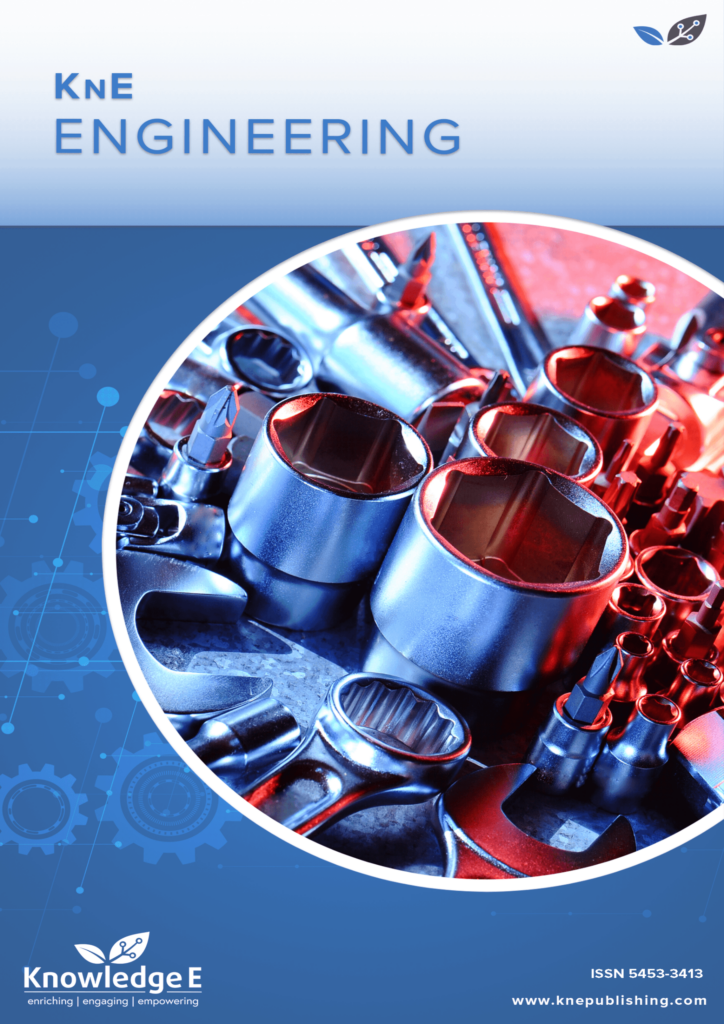
KnE Engineering
ISSN: 2518-6841
The latest conference proceedings on all fields of engineering.
An Experimental Analysis of the Electrical Parameter Variation of a Photovoltaic Module
Published date:Jun 02 2020
Journal Title: KnE Engineering
Issue title: International Congress on Engineering — Engineering for Evolution
Pages:820–832
Authors:
Abstract:
Photovoltaic (PV) energy has been asserting itself in recent years as a true alternative for the electricity production in the future. It is well known that the accuracy of PV parameters is crucial to achieving optimal control of PV systems under any operating conditions. Although many attempts have been made to study the operating ranges of PV parameters, this remains a current research topic given the diversity of PV technologies. In this paper, the PV parameters variation with irradiance and temperature levels is experimentally analysed for a polycrystalline (poly-Si) silicon PV module. The experiment considers experimental data from 130 I-V characteristic curves measured over a typical day, considering several irradiance and temperature levels in the range 29–1023 W/m2 and 19–68 °C, respectively. The results show that PV parameters vary considerably with irradiance and temperature levels for poly-Si technology.
Keywords: Photovoltaic module, Photovoltaic parameters, Singe-diode model, Irradiance and temperature influence
References:
[1] S. Chander, A. Purohit, A. Sharma, Arvind, S. P. Nehra, and M. S. Dhaka, “A study on photovoltaic parameters of mono-crystalline silicon solar cell with cell temperature,” Energy Reports, vol. 1, pp. 104–109, 2015.
[2] H. G. G. Nunes, J. A. N. Pombo, S. J. P. S. Mariano, M. R. A. Calado, and J. A. M. Felippe de Souza, “A new high performance method for determining the parameters of PV cells and modules based on guaranteed convergence particle swarm optimization,” Appl. Energy, vol. 211, pp. 774–791, 2018.
[3] H. Nunes, J. Pombo, J. Fermeiro, S. Mariano, and M. do R. Calado, “Particle Swarm Optimization for photovoltaic model identification,” in International Young Engineers Forum (YEF-ECE), 2017, pp. 53–58.
[4] H. Nunes, J. Pombo, J. Fermeiro, S. Mariano, and M. do R. Calado, “Glowworm Swarm Optimization for photovoltaic model identification,” in International Young Engineers Forum (YEF-ECE), 2017, pp. 59–64.
[5] N. Femia, G. Petrone, G. Spagnuolo, and M. Vitelli, Power electronics and control techniques for maximum energy harvesting in photovoltaic systems. Boca Raton: CRC Press, 2012.
[6] S. Solar, “Sharp solar modules,” ND-R250A5, 2014. [Online]. Available: https://www.sharp.co.uk/cps/ rde/xbcr/documents/documents/Marketing/Datasheet/NDR25 0A5_NDR245A5_Flyer_0414_en.pdf. [Accessed: 19-Aug-2018].
[7] A. Laudani, F. Riganti Fulginei, and A. Salvini, “Identification of the one-diode model for photovoltaic modules from datasheet values,” Sol. Energy, vol. 108, pp. 432–446, 2014.
[8] J. J. Soon and K.-S. Low, “Optimizing Photovoltaic Model for Different Cell Technologies Using a Generalized Multidimension Diode Model,” IEEE Trans. Ind. Electron., vol. 62, no. 10, pp. 6371–6380, 2015.
[9] A. R. Jordehi, “Parameter estimation of solar photovoltaic (PV) cells: A review,” Renew. Sustain. Energy Rev., vol. 61, pp. 354–371, 2016.
[10] L. H. I. Lim, Z. Ye, J. Ye, D. Yang, and H. Du, “A Linear Identification of Diode Models from Single I–V Characteristics of PV Panels,” IEEE Trans. Ind. Electron., vol. 62, no. 7, pp. 4181–4193, 2015.
[11] G. H. Yordanov, O.-M. Midtgård, and T. O. Saetre, “Series resistance determination and further characterization of c-Si PV modules,” Renew. Energy, vol. 46, pp. 72–80, 2012.
[12] M. C. Di Piazza and G. Vitale, Photovoltaic Sources - Modeling and Emulation. London: Springer, 2013.